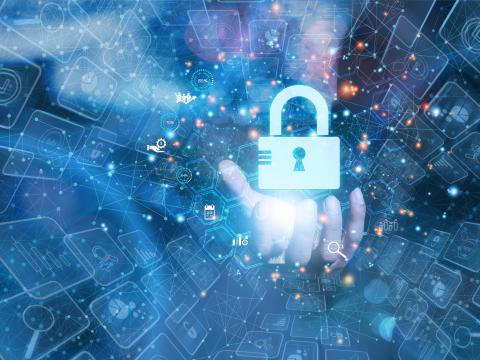Cybersecurity Is Evolving, Increasingly Important
The U.S. Defense Department must secure the cyber domain to protect and defend its own information and U.S. citizens, Gen. Keith B. Alexander, USA, commander of U.S. Cyber Command said today during the opening address of LandWarNet 2010. Gen. Alexander also serves as the director of the National Security Agency. "Every link and system has vulnerabilities that we have to defend," he stated.
The U.S. Defense Department must secure the cyber domain to protect and defend its own information and U.S. citizens, Gen. Keith B. Alexander, USA, commander of U.S. Cyber Command said today during the opening address of LandWarNet 2010. Gen. Alexander also serves as the director of the National Security Agency. "Every link and system has vulnerabilities that we have to defend," he stated. Gen. Alexander organized his speech by comparing warfare in the past with the movie WarGames and cyberwarfare to the movie The Matrix. In the former movie, as in nuclear warfare, there is no good engagement option because of assured mutual destruction. In the latter movie, as in the cyber domain, a choice must be made between doing nothing and pretending everything is fine or seeking the truth and taking action. Gen. Alexander emphasized that network operators must understand and address threats, not turn a blind eye to them. Further emphasizing the difference of warfare through time he talked about the disruptive attacks of the past then explained the even greater threats present today. "What concerns me is the evolution of destructive capabilities," he said. Penetrated networks can expose sensitive information or go down completely, putting at risk not only military operations but critical services such as finance and utilities. "In the network, offense is dominant," Gen. Alexander said. Exploiters have the advantage, he explained, because they only have to be right once. Defenders on the other hand have to be right every time. He stated that network operators need to stop reacting and patching and become more proactive to protect information. One critical aspect of response efforts when they are necessary is speed. Response to attacks must come quickly and for that to happen guidelines, including laws, must be in place to guarantee that actions fix problems while assuring privacy. Gen. Alexander explained the military members operating in cyberspace go through more training about protecting privacy than any other government agency. The Defense Department must operate with its partners to provide dynamic defense that works against organized attacks by nation states and informal actions by nonnation states. With its partners, it must find ways to move from achieving 80 percent security of the network to 100 percent security. Gen. Alexander believes one of the most important priorities for the cyber domain is increasing situational awareness. The general explained that the stand up of Cyber Command will improve cyberoperations by putting the attack and defense missions of the cyber domain together.




Comments